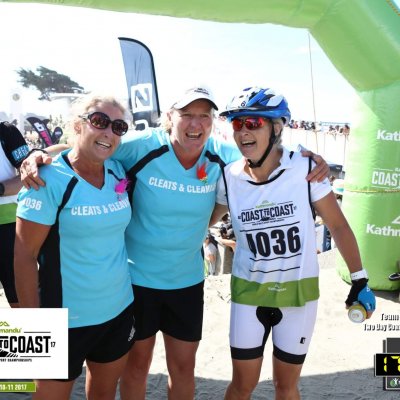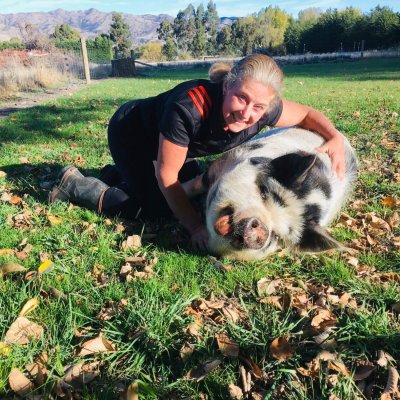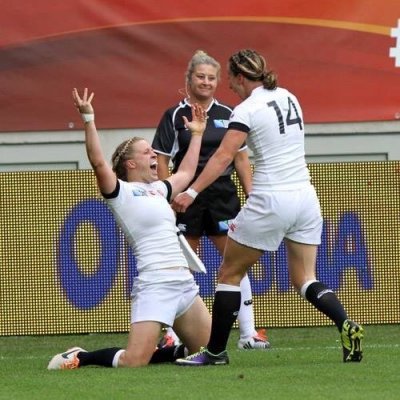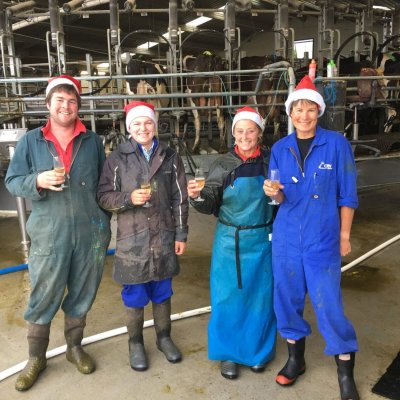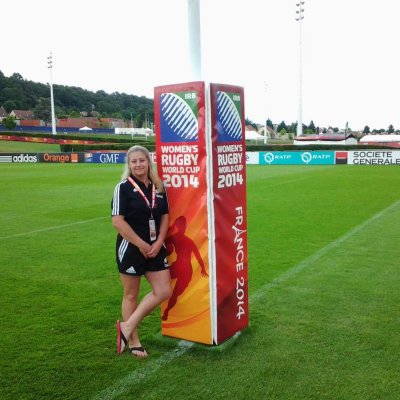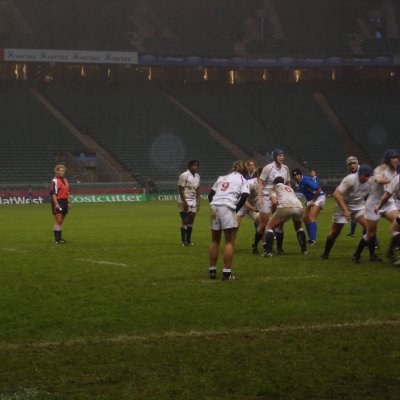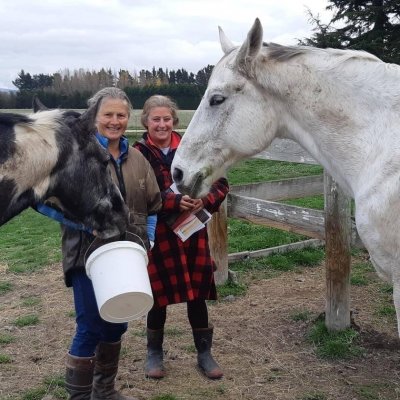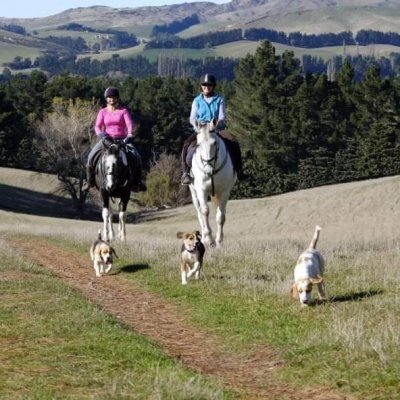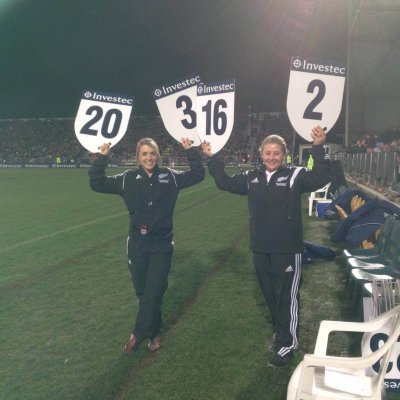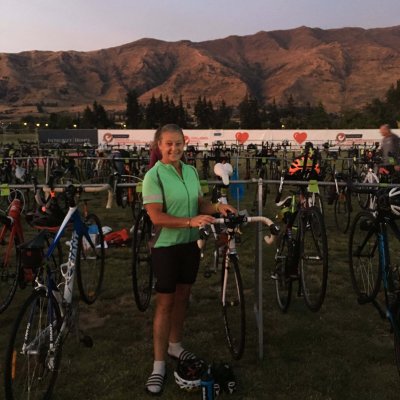A fearless over-achiever, Nicky Ewins (nee Inwood) has never let being a woman define her, deter her or hold her back from treading places where no woman had previously ventured. Organised, thoughtful and dedicated, not only is she a decorated international sportswoman, but a role model who inspires others both on and off the farm and on the rugby field. Nicky’s journey as a trail blazer first started at Lincoln University, where she was the only girl in her farm management class. Since then, she became the first female stock agent for PGG Wrightson and the first female agricultural tutor for Land Based Training. If that wasn’t enough, it was on the rugby field where Nicky really smashed that oval-shaped ball through many, many glass ceilings. Not only was she a member of the first New Zealand Women’s Rugby Team, but she represented New Zealand at the first Women’s Rugby World Cup in Cardiff in the United Kingdom in 1991. As the first female international referee in the country, she then went on to make world headlines as the first woman to officiate in the Six Nations Women’s Rugby Match, also becoming the first woman to referee a test at Twickenham Stadium, the home of English rugby. Having travelled the world spanning multiple different career pathways, all vast in nature, this North Canterbury girl has since returned home to Hawarden to the dairy farm where she grew up.
When asked what concerned Nicky about the health and safety of those in rural industries and communities, she highlighted how worrying about someone else’s wellbeing is often at the forefront of her mind. Wanting to reinforce the message that ‘jobs can always be done tomorrow’, Nicky is a strong believer in staying within your physical and emotional limits, never rushing and having the self-awareness to know when to stop. Communication, she said, is the key to safety and understanding, as well as opening up pathways to having courageous conversations with your loved ones or work mates, to say “You need to stop, you’re tired”.
How would you describe yourself in three words?
Organised, thoughtful and dedicated.
Tell us something interesting about yourself...
I have a twin sister and a younger brother and spent my childhood on a sheep and beef farm in Hawarden. I’m never one to let my gender stop me from ‘achieving’ in a somewhat male-dominated world, which has driven me to tick off a few ‘firsts’ over the years:
- being the only girl in my Lincoln University Farm Management class
- becoming the first female Stock Agent for PGG Wrightson
- I was a member of the first New Zealand Women’s Rugby Team
- I became the first female Agricultural Tutor for Land Based Training
- I was the first female International Referee in New Zealand
- the first woman to referee a test on Twickenham
- the first New Zealand Referee Selector, and
- the first and only all woman Side Line crew for Super Rugby.
I’m now living locally after spending time in the North Island and overseas and after many different careers undertaken, I am back where it all started on the farm – this time milking cows and loving it!
What achievements are you most proud of?
Refereeing at four Women’s Rugby World Cups – 2002 Barcelona, 2006 Edmonton, 2010 London and 2014 Paris. I’m also very proud of playing in the first Women’s Rugby World Cup in 1991 in Cardiff in the United Kingdom.
What makes you truly happy?
Spending time with family, friends and colleagues and knowing that what I am doing can give satisfaction and make a difference to others.
What do you love the most about being a rural woman?
The opportunity to be outdoors working with animals and people in varying conditions, as well as the feeling of being tested physically and mentally. I also enjoy connecting with others that share similar experiences, roles and interests and I’m always keen to learn and share with them.
Tell us about a time when you felt worried about your own or someone else’s health, safety or wellbeing.
Whenever someone is on the farm working, there are always concerns about their wellbeing. The most important issue for me is not to over do it, don’t rush it and to know when to stop! At the end of the day, your jobs can always be done tomorrow. However, we are always wanting to push our limits both physically and emotionally. It’s really crucial to have courageous conversations with loved ones and work mates and say “You need to stop, you’re tired”. Communication is the key to safety and understanding.
What practical things did - or could - you or someone else do to prevent yourself or someone else from getting hurt?
Staff training, meetings, awareness of farm procedures and the continual process of reporting, revising and communicating with each other are essential ways to ensure we are all safe and our wellbeing is being considered.
"Speak up!! We have a powerful voice and it’s important to share our experiences, highs, lows and help empower others through our learnings."
Nicky Ewins, Hawarden, Canterbury NZ Tweet this
Is there a time, place or scenario when your partner or those you work or spend time with are more willing to make changes to the way the work is done, or are more open to making safer, healthier choices?
When new staff are employed, it provides an opportunity to revise and update systems. It’s also always a good time to look at things when farm audits are underway.
If you could give any advice to another rural woman about health, safety and/or wellbeing in rural industries and communities, about influencing change in business - or just in general - what would it be?
Speak up!! We have a powerful voice and it’s important to share our experiences, highs, lows and help empower others through our learnings. Keep promoting the importance of mental and physical wellbeing, connecting and communicating. We can all encourage and help educate the next generation and endeavour to stay safe!
